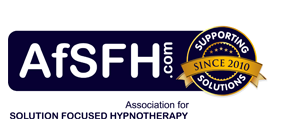In this crisis-of-the-week world where everyone is watching their bank balance carefully, the thing we can afford least is unhappiness.
I think it’s fair to say that we receive and consume more advertising than ever before in human history. It’s no secret that our personal details are harvested in order for big companies to try and figure out what to attempt to sell us. This isn’t news – there are loads of documentaries about it.
What I find absolutely bonkers is that we still, in this day and age, tell ourselves that advertising doesn’t work on me, or at least just accept advertising as an inevitable part of life, even when it’s incredibly invasive. I call it ‘The Jehovas Witness Approach’; when companies bang on your metaphorical door and refuse to leave until you’ve heard what they’ve got to say. The viral campaigns, the product placement, the native adverts, the puff pieces that are written to appear as if they were a reputable source, but are ultimately trying to find a sneaky way of selling you a new car.
Big multinational companies wouldn’t throw so much money at advertising if it didn’t work. Not only that, but while the discipline of therapy has advanced and increased its understanding of the human brain, the industry of advertising has been taking notes. We can all be influenced, and someone in a boardroom is spending billions to try and work out how to extract your hard-earned money.
For a very long time, advertising has attempted to sell us an idea of ‘happiness’. It’s the big house, nice car, name brand products in the fridge, attractive partner on your arm, happy kids with clean clothes and holidays that you can Instagram. Behind almost every single advert is this idea that the big goal of human experience is simple: happiness. Pure unadulterated joy that you can activate with the flick of a switch and then have for your rest of your life. And, quite coincidentally, for only £5.99 you can purchase this product that will bring you that coveted happiness, or at the very least, get you a step closer to it.
Happiness, and literally every single emotion we feel, is a chemical reaction within the brain. These chemical reactions have an average life of ninety seconds in a neurotypical person. You can elongate it by doing lots and lots of things which will give you THAT same chemical reaction, but you can’t just maintain it for the rest of your life. Your brain doesn’t have the wherewithal, and if you DO end up with a never-ending flow of, for example, serotonin, then guess what? That’s a symptom of a serious illness and you need to see a doctor.
It is my considered opinion that we should not gear our whole life in pursuit of happiness. Instead, we should find something else: peace; calm; contentment.
A nice, neutral feeling from which you can frequently reach happiness, amusement, satisfaction, enthusiasm, hope, anticipation, awe … the entire spectrum of positive human emotions. And yes, you can dip to sadness, because life is complicated and sometimes things just don’t work out the way you want, but that’s the great thing about contentment. If that’s your baseline, you can easily come back to it after a difficult day. You can let things go if you need to, and you can still have the energy to fix what needs fixing.
I often treat people with high anxiety, severe depression, or both, and when you spend a prolonged period in these negative mindsets, you have less access to your logical faculties. This makes you vulnerable. It’s harder to plan long term, so budgeting gets more difficult. Anxious and depressed people struggle to be pro-active, instead they are stuck in a re-active state, thinking, and therefore spending, more impulsively. Memory is affected, too. Even something as important as paying a bill can slip one’s mind, resulting in further fees being incurred.
Meanwhile, advertising keeps its finger on the pulse of the 24-hour news cycle, and does everything it can to manipulate common anxieties. I can’t remember the last time I saw an advert that didn’t directly reference “now we’re coming out of the pandemic” or “has the cost-of-living crisis got you down?” Why would they bring these things up if not to offer you an easy way out of the things they KNOW you’re worried about? They want you to be anxious, so you’ll spend impulsively. Then they can pitch themselves as a solution for your problems, or at the very least tempt you with that quick snatch of dopamine that you gain from online shopping. We can see how true it is in our day to day.
Living a content life means you can be satisfied with what you have, no-matter what cleverly-targeted ads are flung your way. Being content means you don’t need the self-help books and weighted blankets. A novel and a cup of tea is enough. Unhappiness is expensive because it makes you vulnerable to those who want to sell you a cure. Contentedness saves you money because it allows you to see the narrative of an ‘unhappiness cure’ as the utter contrived nonsense it clearly is.
I am of the opinion that a good therapist should not only be effective, but actively work to put themselves out of business. We want people to come away from our sessions feeling THAT contentment that I mentioned earlier. Knowing that they can always come back for more help if they need it, but ultimately the treatment they’ve purchased has worked and WILL be permanent. I respect people’s right to come to my service when they feel ready to make a change, not when my bank balance needs padding. I would never withhold a cure in the interest of getting return business, and, surprise surprise, this is still a sustainable business model. The world is not about to run out of people needing help anytime soon.
I see my own discipline as the counterweight to advertising. Professionals in psychology have, for a long time, presumed that unhappiness and depression is caused by a chemical imbalance in the brain. It’s recently been discovered that this is not necessarily the case, and there’s been some compelling evidence to suggest that it may have roots in childhood trauma, or beliefs we establish about ourselves when we are very young. I take pride in staying as up-to-date with modern developments in therapy as I can, and I’m happy to say that it’s now possible to resolve a trauma in as few as one or two sessions, and a severe depressive case in ten to fifteen.
Unfortunately, I’m sure there’s also someone in a boardroom somewhere taking notes of these developments and typing ‘common childhood trauma triggers’ into Google to see if there’s any way they can use this information for profit.
Ultimately, the most cost-effective thing we can achieve right now is finding our own contentment. Look after yourselves. Not the most original sentiment I know, but at least it’s sincere. A lot of people are unhappy these days, and the way we consume media, and indeed advertising, can often make us feel overwhelmed. In those moments, we must focus on the things we can control, and so often that starts with the way we feel about ourselves. Try to start recognising the difference between happiness and contentedness, and see that there is value in both. Enrich your lives in meaningful ways.
And for goodness sake, disable cookies on your internet browser.
Lloyd Robinson
https://www.afsfh.com/hypnotherapists/593-lloyd-robinson/

